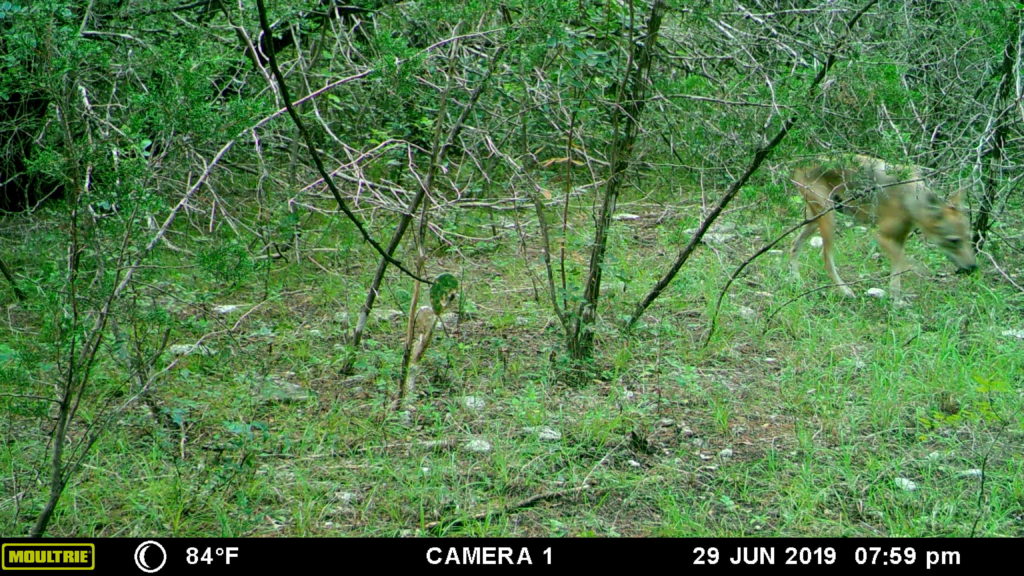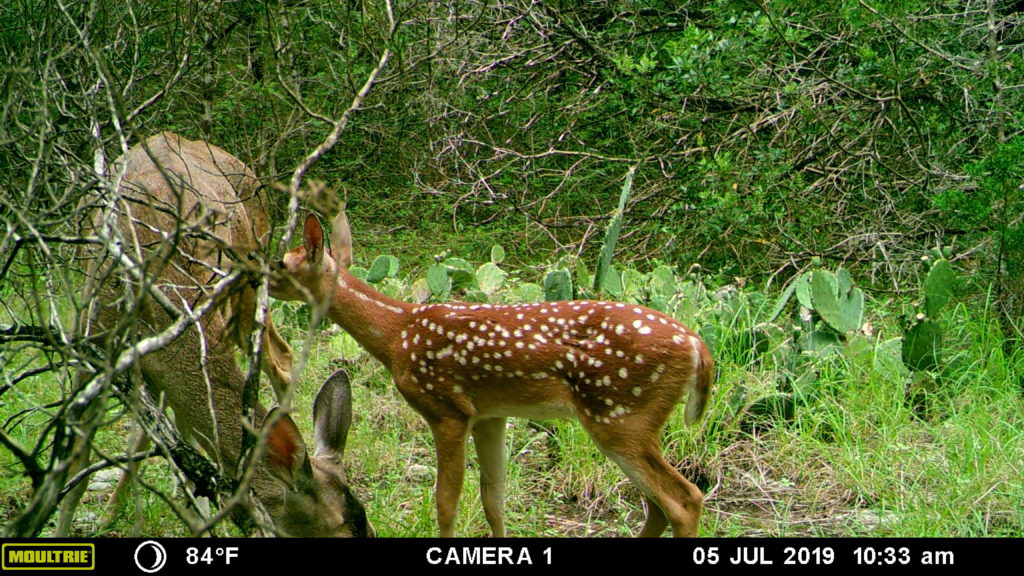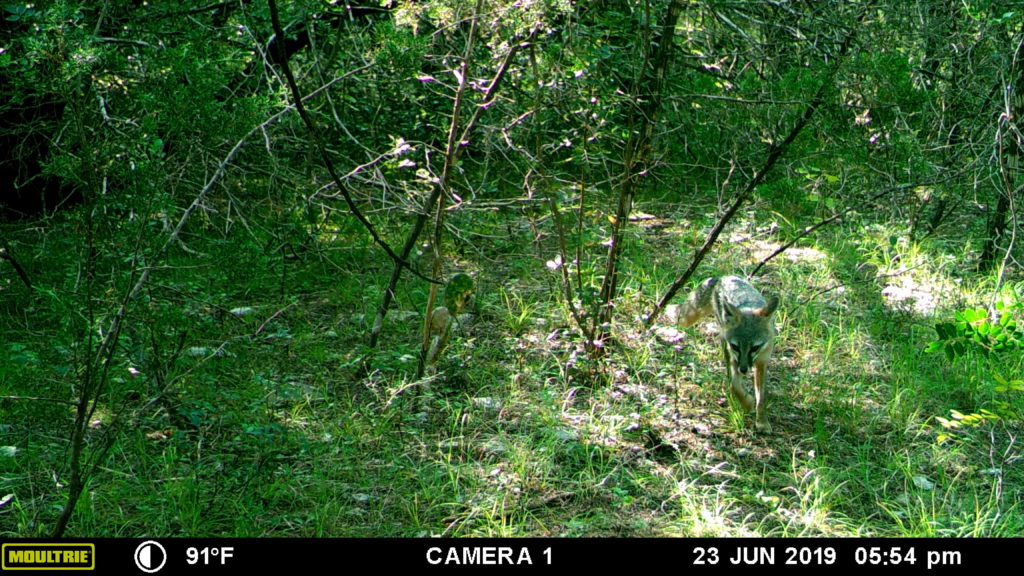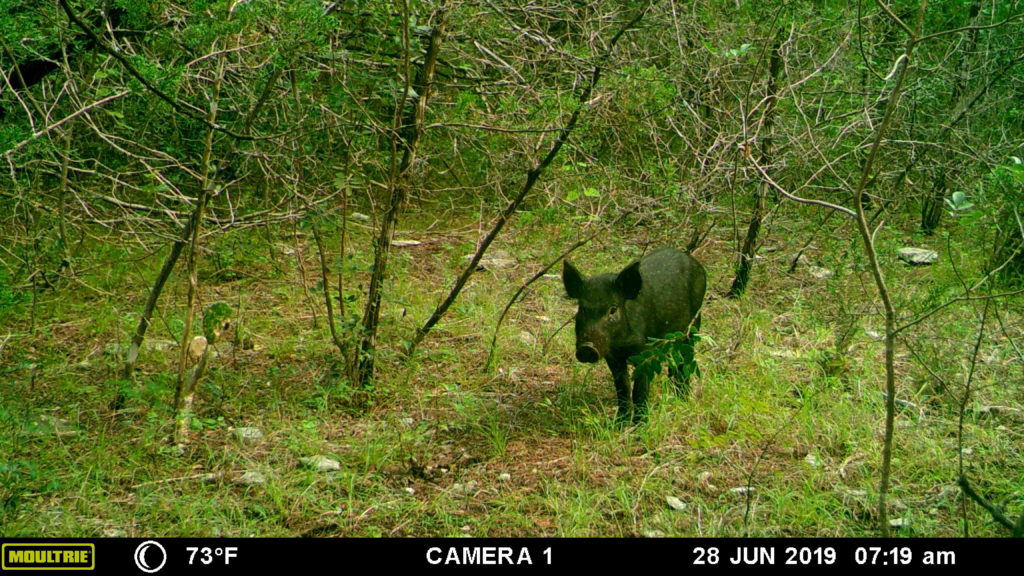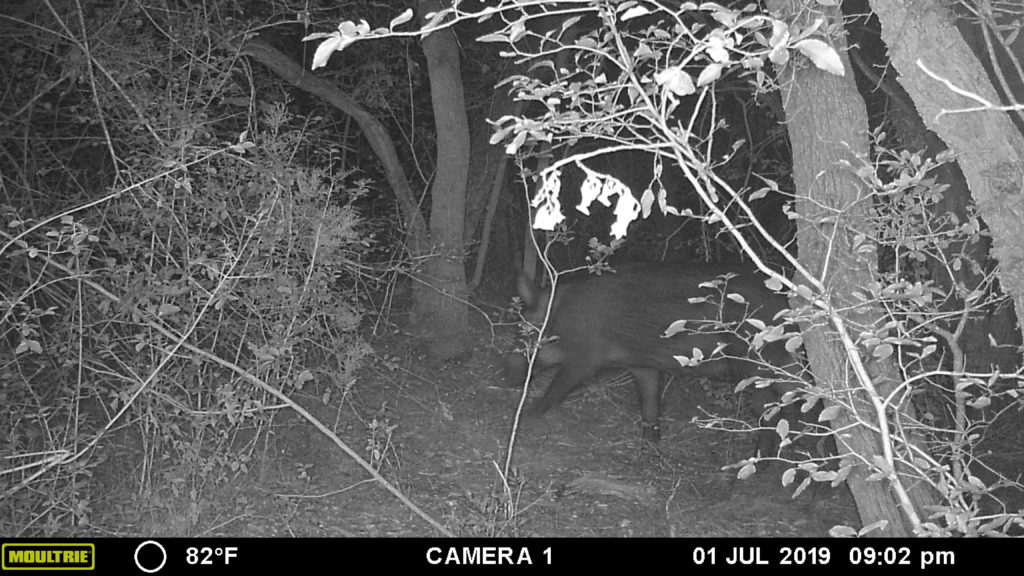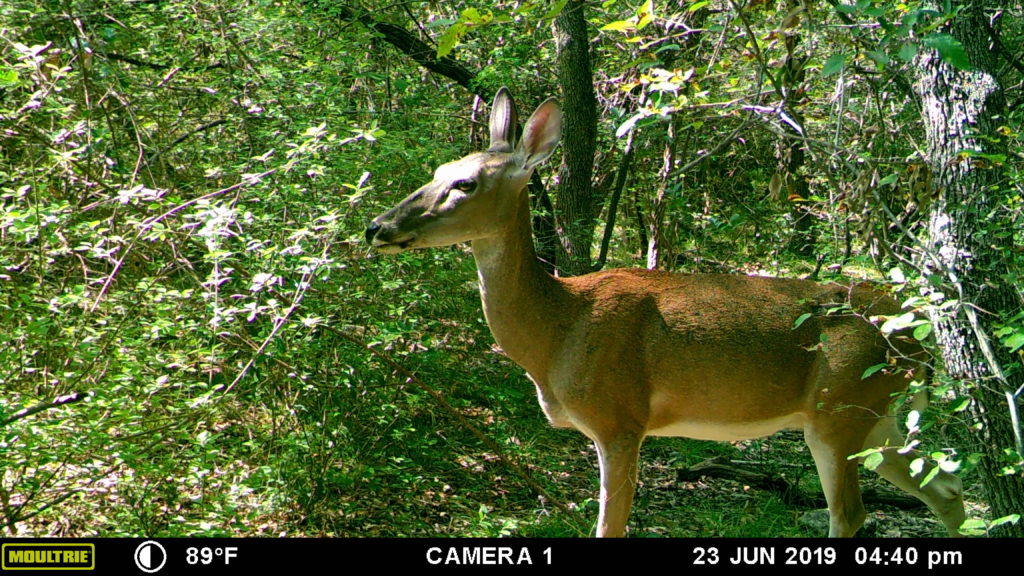Over the summer NVC student Allie Sanchez used camera “traps”—motion-sensor cameras affixed to trees—to conduct an exploratory study of campus wildlife. Having been bitten by the “research bug” last year while studying, presenting, and publishing on students’ knowledge of climate change research alongside other NVC students, Allie embarked on a student-faculty, extracurricular study of her own design.
Allie worked with Dr. Scott Walker in Geography and Environmental Sustainability to plan out where to place three camera traps around wooded parts of our campus and to map their locations using geospatial technology. For eight weeks Allie checked the cameras and retrieved the photos to determine what wildlife roams NVC day and night. She discovered raccoons, whitetail deer, opossum, skunk, a sounder of six feral hogs, coyote, grey fox, and a black-crested titmouse—a small bird common to this area. She was unable to “capture” any wildcat images.
Allie said “all this experience alone is worth more than a four-year degree.” When asked exactly what that means, she stated that she learned “not to be intimidated by something that seems monumental by taking a big project and breaking it down into smaller pieces.” She learned how to plan research, do a literature review, conduct statistical analyses, work with her research colleagues to write a peer-reviewed journal article, and present at a professional academic conference alongside graduate students and faculty from research-one universities—schools like the University of Texas-Austin and Louisiana State University.
She stated this work has boosted her self-confidence and she now finds herself doing some literature review work at UT Health San Antonio where she works as a full-time administrative assistant. Allie is moving on to Texas A&M-San Antonio this semester to pursue a BS in Biology with a concentration in Ecology.
Students interested in doing student-faculty research in Geography and Environmental Sustainability as an extracurricular activity, or for GEOG 2389-Academic Cooperative (independent study) elective credit, contact Dr. Scott Walker, [email protected]. Dr. Walker can also update students on the new BS in Environmental Science Field of Study coming in 2020 and discuss transferring to UTSA’s upcoming Environmental Studies BA degree.
